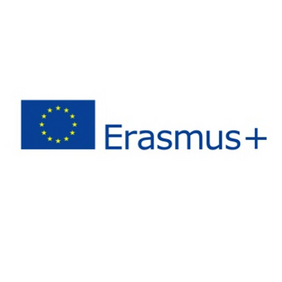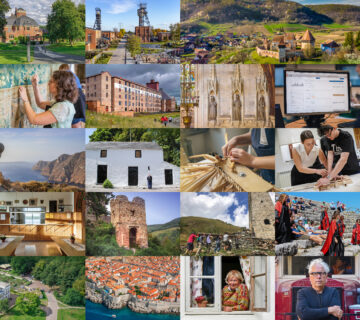The Danube Transnational Programme
The second call for the Danube Programme is expected to be launched at the end of 2016 or the beginning of 2017.
The programme strengthens joint and integrated approaches to preserve and manage the diversity of natural and cultural assets in the Danube region as a basis for sustainable development and growth strategies. Moreover, the programme is envisaged to invest in the creation and/or maintenance of ecological corridors of transnational relevance in the Danube region. This intervention is directly interlinked with water management and the control of environmental risk factors, such as flood risks. Furthermore, disaster prevention and disaster management (risk management) is addressed in relation to risks that are caused by non-functioning ecosystems and man-made changes in climate conditions.
The specific objectives covered by Priority 2 are:
- Strengthen transnational water management and flood risk prevention
- Foster sustainable use of natural and cultural heritage and resources
- Foster the restoration and management of ecological corridors
- Improve preparedness for environmental risk management
The total budget for Priority 2 is: €83,423,830. You can find further information at: http://www.interreg-danube.eu/relevant-documents/
Creative Europe
There is an open call for expressions of interest for the establishment of a pool of experts to potentially become members of the Panel for the EU action "European Capital of Culture". Interested experts are invited to send their application at any time before 31/12/2020.
You can find further information at: http://ec.europa.eu/culture/calls/general/2014-eac-14_en.htm
Horizon 2020
CULT-COOP-03-2017: Cultural literacy of young generations in Europe
Cultural diversity is one of Europe’s most valuable assets and European educational and cultural systems need to cater for diversity and enable all citizens to build the skills and competencies needed for effective inter-cultural dialogue and mutual understanding. The challenge is about understanding how young people make sense of Europe and its differing cultures. The influences on young people are wide ranging, including formal education, family and cultural background and media. The aim is to gain a greater understanding of cultural literacy itself as a non-normative concept covering relevant culture-related knowledge, skills and competencies and how young people in particular acquire it.
The research to address this challenge should focus on one or two dimensions that have to be comprehensively addressed. The research may also cover other issues relevant for addressing the specific challenge.
- Promoting cultural literacy through formal education
The European Commission considers that proposals in the order of €5,000,000 would be considered sufficient to address the challenge, but requests for other amounts for contributions from the EU may also be considered.
Expected Impact: Research under this topic will contribute to better understanding and enhancing cultural literacy for the young generations, which will lead to greater appreciation of diversity. Moreover, it will contribute to reinforcing demand for sustainable and creative uses of European cultural heritage. The research will involve policy-makers, stakeholders and educational practitioners for the development and uptake of teaching material and tools both for formal and informal education. This will also include testing innovative practices for enhancing cultural and inter-cultural competencies in their real-life context making reference also to the fight against stereotypes.
Type of Action: Research and Innovation action, opening: 04 Oct 2016, deadline 02 Feb 2017
You can find further information at: https://ec.europa.eu/research/participants/portal/desktop/en/opportunities/h2020/calls/h2020-sc6-cult-coop-2016-2017.html
Mediterranean Sea Basin Programme
The overarching objectives of the MED programme are to promote economic and social development and to address common challenges for the environment in countries in or around the Mediterranean Sea. Eligible countries are Algeria, Cyprus, Egypt, France, Greece, Israel, Italy, Jordan, Lebanon, Malta, Palestine, Portugal, Spain, Syria, Tunisia, Turkey and the United Kingdom.
More than €209,000,000 has been granted by the EU for the period 2014-2020. The call will address standard projects and be open to the four thematic objectives and 11 priorities of the Programme. The four thematic objectives are:
- Small and medium-sized enterprises development
- Support to education, research, technological development and innovation
- Promotion of social inclusion and fight against poverty
- Environmental protection, climate change adaptation and mitigation
There are three types of projects possible: standard projects, strategic projects and capitalisation projects. Standard projects will have a demonstration character, providing pilot examples in a specific field of expertise, while ensuring networking among relevant stakeholders. Strategic projects will guarantee a deeper focus on emerging needs identified by Terms of References. They will support an extended impact on the selected priorities and a clear contribution to EU and national policies in the region. Capitalisation projects will promote the exploitation and/or widest dissemination of the successful practices and results of previously financed projects.
The first call for proposals will be launched by the end of 2016. You can find further information at: http://www.enpicbcmed.eu/enicbcmed-2014-2020.
To cite this article:
Papathanasiou-Zuhrt, D. (2016) ’Current opportunities from European funding programmes‘. In Interpret Europe Newsletter 2-2016, 24
Available online:
https://www.interpret-europe.net/fileadmin/Documents/publications/Newsletters/ie-newsletter_2016-2_summer.pdf




